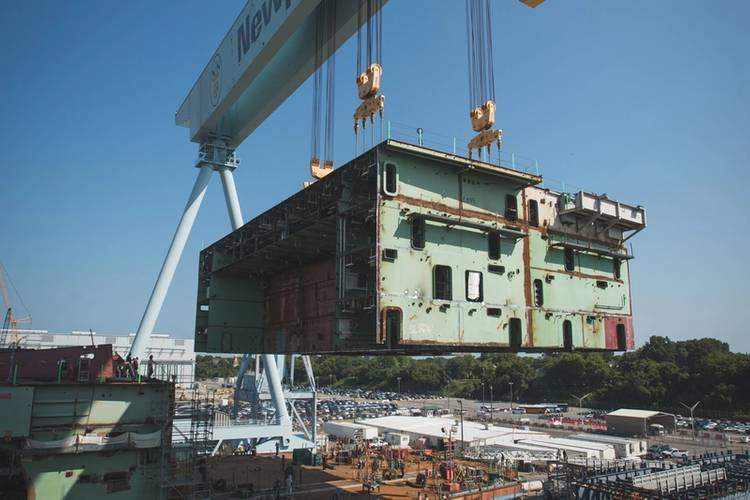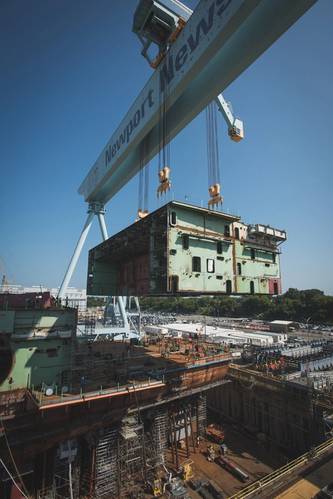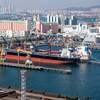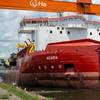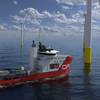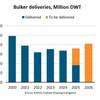Aircraft Carrier John F. Kennedy 50% Complete
Construction of the U.S. Navy’s second Gerald Ford class aircraft carrier has reached its midway point following the installation of one of the ship’s largest units.
Huntington Ingalls Industries’ (HII) Newport News Shipbuilding said it has installed one of the heaviest of the planned steel structures, known as superlifts, that will be joined together to make up nuclear-powered aircraft carrier John F. Kennedy (CVN 79). The superlift of the aft section between the hangar bay and flight deck weighs approximately 905 metric tons, is 80 feet long, about 110 feet wide and four decks in height.
Combining 19 smaller units into one superlift allowed the shipbuilder to install a majority of the outfitting equipment—grating, pumps, valves, pipe, electrical panels, mounting studs, lighting, ventilation and other components—before the structure was hoisted into the dry dock using the shipyard’s 1,050-metric ton gantry crane. This approach resulted in this work being completed 14 months earlier than it was on Ford, said Lucas Hicks, Newport News’ vice president, CVN 79 program.
“This was a game changer for us,” Hicks said. “Performing higher levels of pre-outfitting represents a significant improvement in aircraft carrier construction, allowing us to build larger structures than ever before and providing greater cost savings.”
“This superlift represents the future build strategy for Ford-class carriers,” said Mike Butler, program director of CVN 79. “Not only did we build this superlift larger and with significantly more pre-outfitting, we managed much of the work on the deckplate with new digital project management tools as part of our Integrated Digital Shipbuilding initiative. The lessons we learned from this successful superlift will allow us to build even more similar superlifts on future ships in the Ford class.”
Kennedy is scheduled to move from the dry dock to an outfitting berth in the fourth quarter of 2019, three months ahead of schedule. The ship is planned to be commissioned in 2020.
CVN 79 is the second aircraft carrier to be named for the late president. The first, a conventionally-powered carrier, served from 1968 to 2007 and was also built by Newport News.





